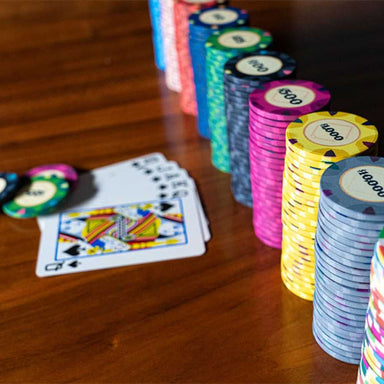
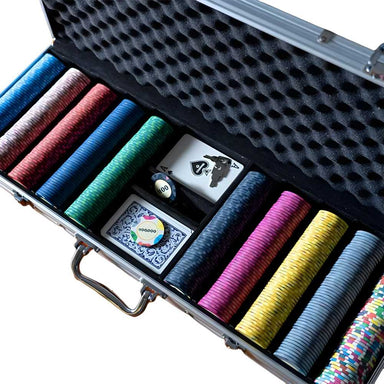 Save $80.15
Save $80.15
Classic Casino Poker Chips |500-Piece|
Included: 500 pcs 10g Limited Edition Poker Chip Set Aluminum Case 2 x Decks Copag Playing Cards Chip Breakdown: $.25 - 30pcs ...
View full detailsHow many poker chips should I buy for a typical game night?
A: The number depends on the size of your group and the type of poker you’re playing. As a rule of thumb, a 300-chip set is suitable for up to 5 or 6 players, while 500 chips can accommodate 8 to 10 players comfortably. If you often host larger tournaments, consider 750 or more to ensure you don’t run short.
What is the difference between clay, composite, and ceramic poker chips?
A: Clay chips are prized for their authentic feel and sound, though they can be more expensive and prone to chipping. Composite chips blend materials (often plastic and clay) for durability at a lower price. Ceramic chips are smooth, highly customizable, and resistant to wear, striking a balance between performance and cost.
What chip weights are available, and does weight really matter?
A: Common weights range from around 8 grams up to 14 grams per chip. Heavier chips can feel more substantial and are often associated with casino-quality sets. However, weight preference is subjective—some players find heavier chips more satisfying, while others prefer lighter chips for ease of handling.
Are there any special features or designs I should look for in poker chips?
A: Look for chips with clear denominations or easily distinguishable designs, especially if you play different variations of poker. Some sets have inlays or stickers that indicate chip value, while others have intricate graphics or textured edges for better grip. If you want a cohesive theme, consider matching chip designs to a specific color scheme or style of play.
How should I store and maintain my poker chips?
A: It’s best to keep them in a dedicated storage case—many chip sets come with aluminum or wooden cases to protect chips from dust and damage. Avoid exposing chips to extreme temperatures or direct sunlight. If they get dirty, a quick wipe with a slightly damp cloth usually does the trick, but be careful not to use harsh chemicals that could damage the chip’s finish.
Read FAQs

 Save $80.15
Save $80.15
Included: 500 pcs 10g Limited Edition Poker Chip Set Aluminum Case 2 x Decks Copag Playing Cards Chip Breakdown: $.25 - 30pcs ...
View full details
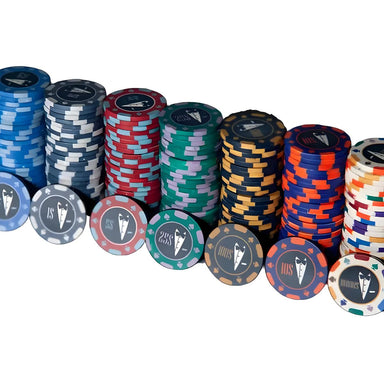 Save $80.15
Save $80.15
Included: 500 pcs Limited Edition Poker Chip Set 2 x Decks Copag Playing Cards Aluminum Case Chip Breakdown: $.25 - 60pcs $...
View full details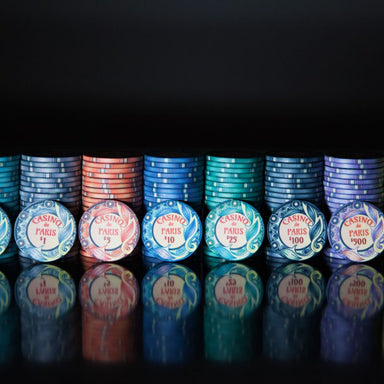
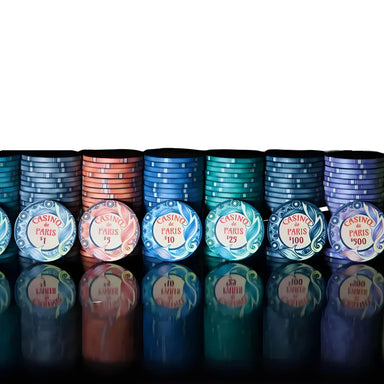 Save $80.15
Save $80.15
Included: 500 pcs 10g Limited Edition Poker Chip Set Aluminum Case 2 x Decks Copag Playing Cards Chip Breakdown: $.25 - 30 ...
View full details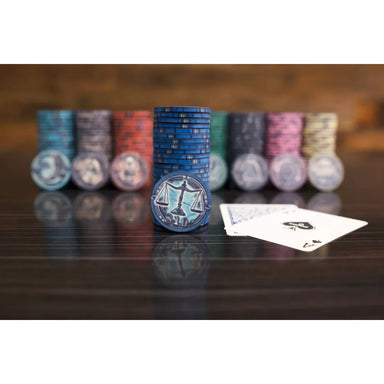
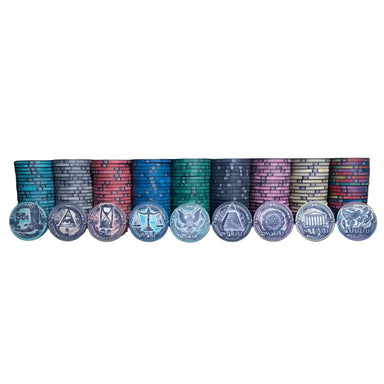 Save $80.15
Save $80.15
Included: 500 pcs Limited Edition Poker Chip Set 2 x Decks Copag Playing Cards Aluminum Case Chip Breakdown: $1 - 100pcs $5...
View full details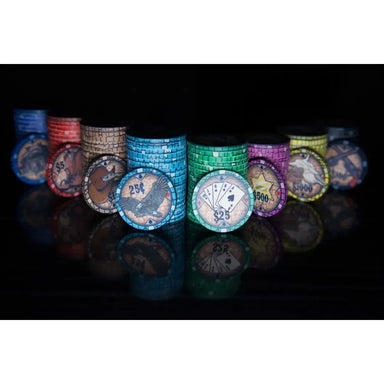
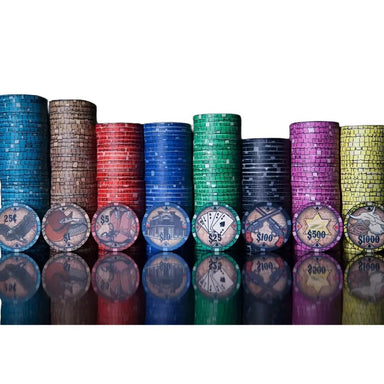 Save $80.15
Save $80.15
Included: 500 pcs 10g Limited Edition Poker Chip Set 2 x Decks Copag Playing Cards Aluminum Case Chip Breakdown: $10 - 190pcs ...
View full details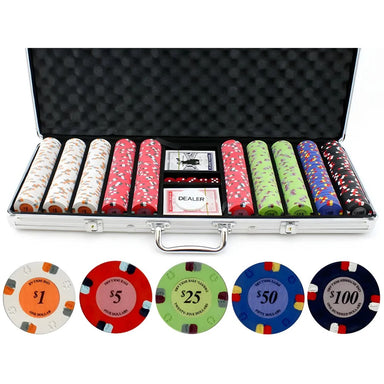 Save $66.15
Save $66.15
Included: 500 pcs 13.5g Limited Edition Poker Chip Set 2 x Decks Copag Playing Cards Aluminum Case 5 Red Casino Style Dice Dealer Button Chip...
View full details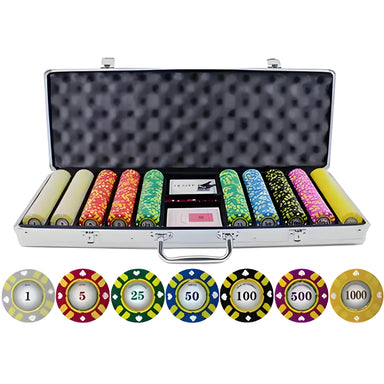 Save $69.65
Save $69.65
Included: 500 pcs 13.5g Limited Edition Poker Chip Set 2 x Decks Copag Playing Cards Aluminum Case 5 Red Casino Style Dice Dealer Button Chip...
View full details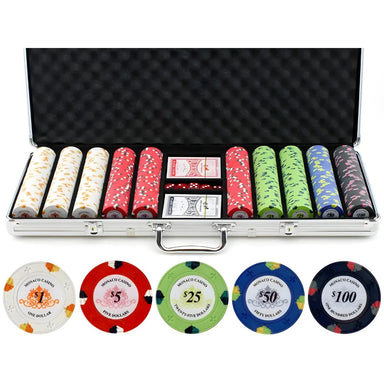 Save $66.15
Save $66.15
Included: 500 pcs 13.5g Limited Edition Poker Chip Set 2 x Decks Copag Playing Cards Aluminum Case 5 Red Casino Style Dice Dealer Button Chip ...
View full details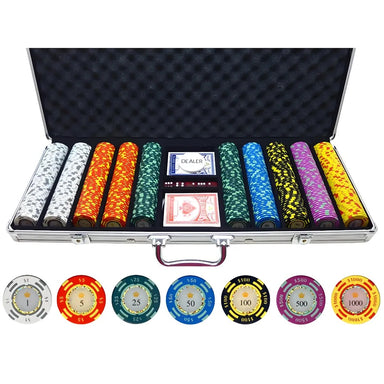 Save $69.65
Save $69.65
Included: 500 pcs 13.5g Limited Edition Poker Chip Set 2 x Decks Copag Playing Cards Aluminum Case 5 Red Casino Style Dice Dealer Button Chip B...
View full details Save $7.00
Save $7.00
Included: One Random Chip From 5 Different Sets
Added to your cart:
I gave this to my dad for his birthday since he grew up listening to Elvis. He was thrilled. It’s simple to use and plays his old records without any issues.
Sound is balanced and clear, especially when paired with external speakers.
Sound quality is great for a portable turntable, and I love that it connects to Bluetooth.
nice stand for someone with a moderate vinyl collection
I gave this to my dad for his birthday since he grew up listening to Elvis. He was thrilled. It’s simple to use and plays his old records without any issues.
Sound quality is great for a portable turntable, and I love that it connects to Bluetooth.
design is sleek and modern

